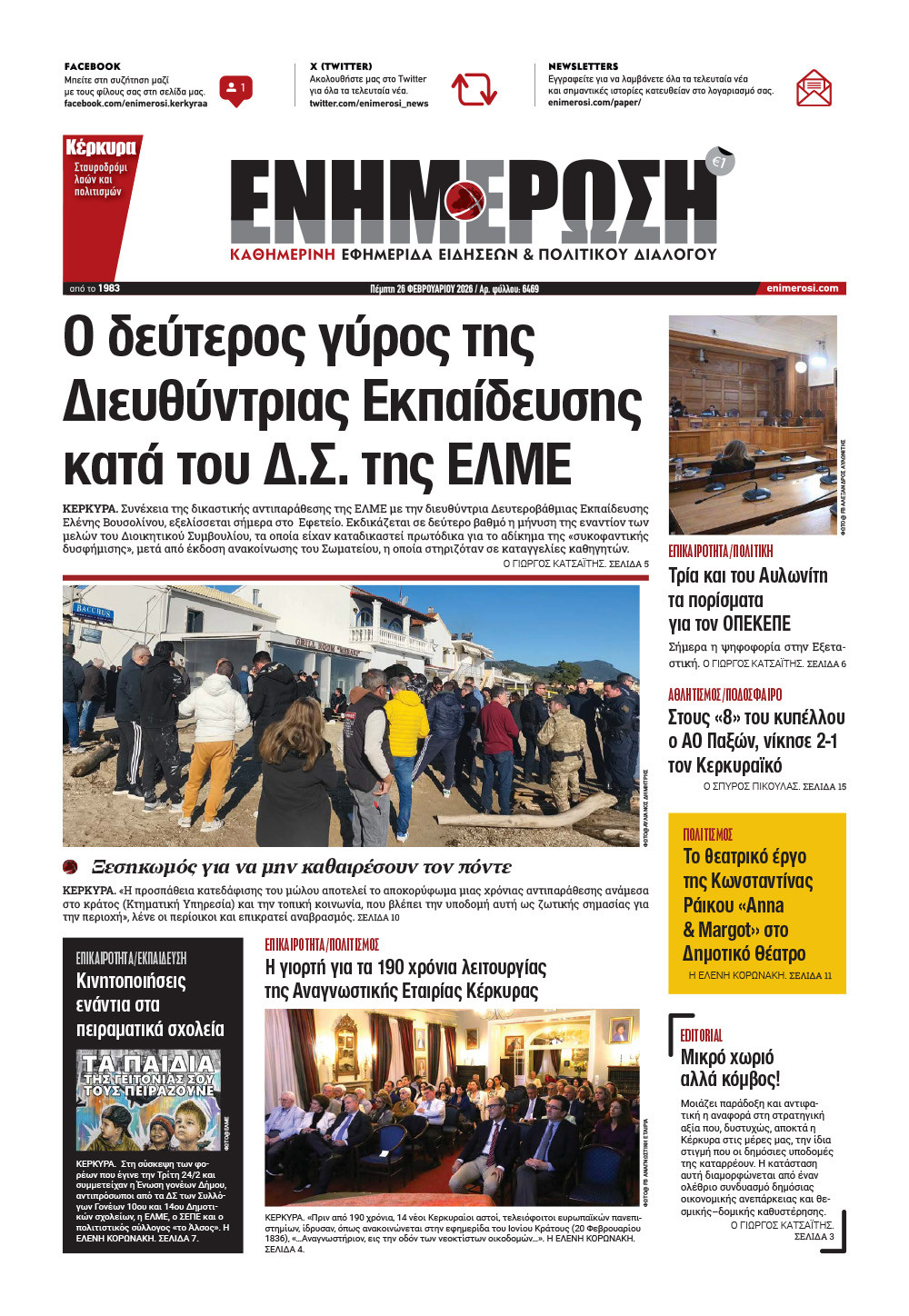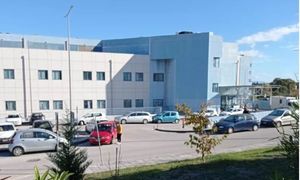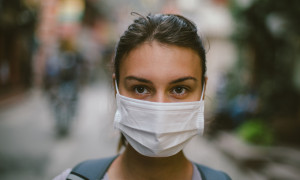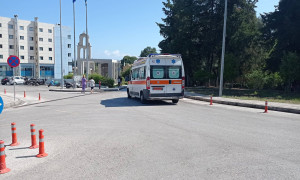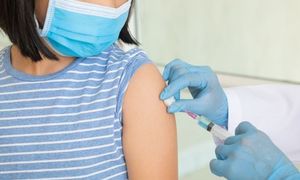Corfu Covid Watch: Increase in cases among younger people
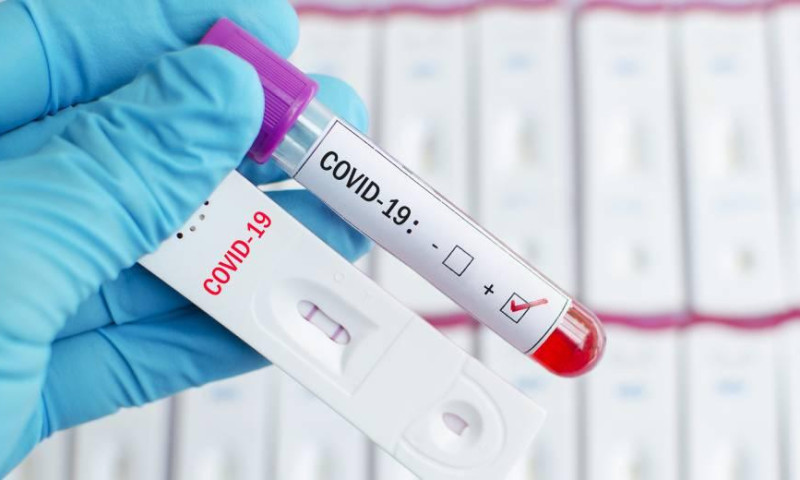
COVID-19
21 Jul 2021
/ 14:53
CORFU. The high spread among younger people, where the percentage of unvaccinated people is much higher, will inevitably lead to a number of serious cases even among young and healthy people.
The data collected by the Central Corfu Covid Watch Committee show an increase in new cases among permanent residents in July. So far, this increase mainly concerns younger people. At the same time, a significant number of cases have been recorded among visitors to the island, the vast majority of whom are also younger people.
This development is in line with the progress of the epidemic across the country, and is attributed to increased mobility and the lifting or non- implementation of many of the measures. The new Delta variant continues to spread and, under the prevailing conditions, is expected to dominate during the summer both in Greece and throughout Europe. Corfu has not yet recorded a significant spread of the new variant, but it is likely to occur over the upcoming period.
The number of hospitalisations and serious cases among permanent residents has not shown any particular increase so far. However, the fact that about one in four people over the age of 60 remain unvaccinated leaves considerable scope for spread of the virus to high-risk groups, who are at increased risk of serious illness and hospitalisation.
The high spread among younger people, where the percentage of unvaccinated people is much higher, will also inevitably lead to a number of serious cases even among young and healthy people. Furthermore, the health system in Corfu is starting to come under pressure from the COVID cases among visitors.
Given the opening up of social and economic activity and the continuous relaxation of measures, increasing the number of vaccinations is of critical importance. To date, approximately 55% of Corfiots have received the first jab, while about 50% are fully vaccinated either with a two-shot or a one-shot vaccine. However, the vaccination programme has shown a significant decline in July compared to previous months.
It is necessary for the vaccination programme to continue during the summer months, even at a slower pace, in order to limit the risk of a significant resurgence of the epidemic. It is also important to control uncontrolled socialising, which is conducive to the transmission of the virus.
Such phenomena are already occurring in groups of young visitors and are likely to increase with the arrival of tourists from the United Kingdom. The increased number of cases observed in many parts of the country are largely linked to mass entertainment and crowding, even in open areas.
The prevalence of the highly contagious Delta variant both in Greece and throughout Europe by the end of the summer is expected to lead to significant spikes. Those who are fully vaccinated are highly protected against this strain of the virus as well. In contrast, there is expected to be a high spread of the new strain in the significant part of the population that remains unvaccinated. Under these circumstances, it is crucial that at least two thirds of the population be vaccinated by the end of the summer, so that social and economic
activities are not disrupted again by increases in the number of cases.
This development is in line with the progress of the epidemic across the country, and is attributed to increased mobility and the lifting or non- implementation of many of the measures. The new Delta variant continues to spread and, under the prevailing conditions, is expected to dominate during the summer both in Greece and throughout Europe. Corfu has not yet recorded a significant spread of the new variant, but it is likely to occur over the upcoming period.
The number of hospitalisations and serious cases among permanent residents has not shown any particular increase so far. However, the fact that about one in four people over the age of 60 remain unvaccinated leaves considerable scope for spread of the virus to high-risk groups, who are at increased risk of serious illness and hospitalisation.
The high spread among younger people, where the percentage of unvaccinated people is much higher, will also inevitably lead to a number of serious cases even among young and healthy people. Furthermore, the health system in Corfu is starting to come under pressure from the COVID cases among visitors.
Given the opening up of social and economic activity and the continuous relaxation of measures, increasing the number of vaccinations is of critical importance. To date, approximately 55% of Corfiots have received the first jab, while about 50% are fully vaccinated either with a two-shot or a one-shot vaccine. However, the vaccination programme has shown a significant decline in July compared to previous months.
It is necessary for the vaccination programme to continue during the summer months, even at a slower pace, in order to limit the risk of a significant resurgence of the epidemic. It is also important to control uncontrolled socialising, which is conducive to the transmission of the virus.
Such phenomena are already occurring in groups of young visitors and are likely to increase with the arrival of tourists from the United Kingdom. The increased number of cases observed in many parts of the country are largely linked to mass entertainment and crowding, even in open areas.
The prevalence of the highly contagious Delta variant both in Greece and throughout Europe by the end of the summer is expected to lead to significant spikes. Those who are fully vaccinated are highly protected against this strain of the virus as well. In contrast, there is expected to be a high spread of the new strain in the significant part of the population that remains unvaccinated. Under these circumstances, it is crucial that at least two thirds of the population be vaccinated by the end of the summer, so that social and economic
activities are not disrupted again by increases in the number of cases.



